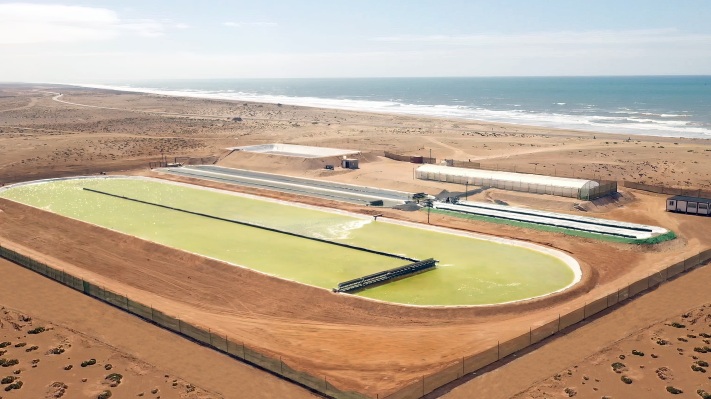Sure you can run machines to decarbonize the air, but where’s the fun in that when you can invite mother nature to do the work for you? Brilliant Planet does just that: By using seawater and replicating the perfect growth conditions for algae blooms, the company has created what it believes is the perfect conditions for low-cost carbon capture.
“You might have seen those the IPCC report came out yesterday — if you read the IPCC report, you know we’ve missed the point at which we can just change your behaviors and just decrease CO2 output. We’ve got to remove carbon from the atmosphere, the carbon that we already put up there. It’s going to be critical to have other ways of keeping carbon in the atmosphere at manageable levels to limit global warming. Ideally, we would just change our behaviors, we’d fully electrify everything right away, but it just takes time,” laments Adam Taylor, CEO at Brilliant Planet, in a conversation with TechCrunch “It takes time to change people, governments and companies , We’ve got to do something about it.”
And that’s precisely what Brilliant Planet is doing – using algae. The company believes there are many parts to carbon reduction — protecting forests etc — but that there are challenges around that, too; especially around price. It wants to get the price of a ton of CO2 removed from the atmosphere to a sub-$50 price point.
Brilliant Planet is unlocking the power of algae as an affordable method of permanently and quantifiably sequestering carbon at the gigaton scale. The company’s innovative processes enable vast quantities of microalgae to grow in open-air pond-based systems on coastal desert land. This is achieved without using freshwater, by harnessing a natural process that contributes to the health of oceans and air.
The process itself is essentially solar-powered — because the algae are effectively powered by the sun — but also needs to run pumps to move seawater around. There are two perks to its method; unlike some other competitors the CEO is very careful not to name on the record, the company doesn’t use any freshwater in its process, and in addition, the process helps de-acidify the ocean water it does use.
“We have to move very large volumes of seawater around, and that uses energy, but we’ve done a lot of design work around running the system extremely energy efficiently. So gravity feeds down through most of the system from one pond into the next. We have a partnership with Southampton University on optimizing every aspect of the paddle wheels and the ponds. A lot of time and effort has gone into minimizing that energy cost, but fundamentally, we do need to raise water from ocean level to a few meters above sea level,” explains Taylor. “In the process we do we de-acidify that ocean water. So for every one unit of ocean water we bring in, we de-acidify the equivalent of five units of ocean water back to pre-industrial levels.”
Following four years of trials at its 3-hectare research facility in Morocco, Brilliant Planet will use the proceeds of the Series A round to prepare for the construction of a 30-hectare commercial demonstration facility while continuing its fundamental R&D program based in London.
“By using empty desert and seawater that would not have otherwise come to the surface, our solution creates ‘new’ Net Primary Productivity. In other words, we employ underutilized natural resources to grow new biomass and draw down excess carbon dioxide,” says Raffael Jovine, Chief Scientist and Co-Founder at Brilliant Planet. “Per unit area this approach sequesters up to 30 times more carbon per year than rainforests, while it also de-acidifies the local coastal seawater back to pre-industrial levels,”
The company today announced it closed a $12 million Series A funding. The round was co-led by Union Square Ventures and Toyota Ventures. Additional and follow-on investors include Future Positive Capital, AiiM Partners, S2G Ventures, Hatch and Pegasus Tech Ventures.
